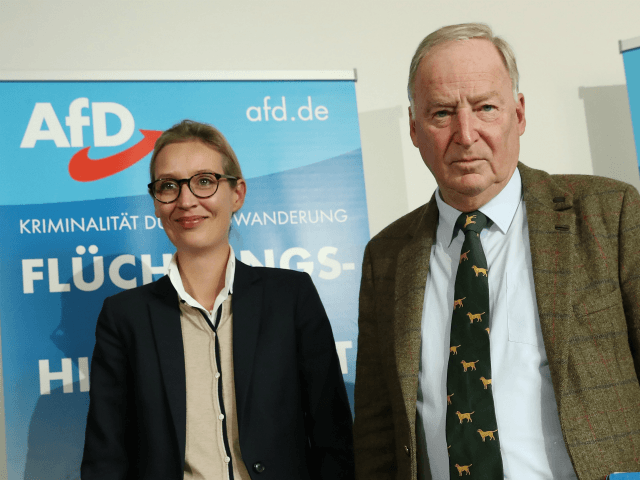As Germany gears up for next Sunday’s federal elections, there is a growing fear among the nation’s elite establishment that the conservative AfD party will do considerably better than polls indicate.
A recent article by the magazine Der Spiegel bore the title “I’ve Never Seen So Much Anger, So Much Hate,” which is liberal doublespeak for a growing malaise among the German electorate for the business-as-usual of Angela Merkel’s globalist administration.
Alternative für Deutschland (AfD) was founded in 2013 with a strong anti-European Union identity, but has shifted its focus in response to Germany’s central role in Europe’s migrant crisis, which has turned many against Angela Merkel and her Christian Democratic Union (CDU). AfD has called for far more rigorous immigration controls, including sealing the European Union’s external borders.
No one doubts Angela Merkel’s ultimate victory Sunday, but it will be far from the landslide triumph she would have liked to see. Her CDU party will probably only take a third or so of the votes, which reflects a generalized dissatisfaction with the reigning political establishment.
As Breitbart News reported Wednesday, the populist and Eurosceptic AfD party is polling around 12 percent, and will almost surely win Bundestag seats. AfD won 4.7 percent of the votes in the 2013 federal election—the year the young party was established—barely shy of the 5 percent electoral threshold to sit in the Bundestag. All of that is expected to change Sunday.
If the AfD were to receive the predicted 12 percent of the total vote, they would gain 85 seats in their first-ever national election, a sizable foothold in the federal government.
But AfD may do significantly better than polls are indicating.
Recent experiences in the U.S. and the U.K. suggest that pollsters and mainstream media outlets are woefully out of touch with the “forgotten” discontented masses who hunger for change, and informed observers suggest something similar may be afoot in Germany.
Moreover, the AfD will be the one party that is not invited to coalition talks, which, as the Italian Five Star Movement (M5S) has shown, can offer an enviable platform to avoid unseemly political bargaining while galvanizing its electoral base.
The party’s strong showing means that the AfD will be the biggest opposition party if Merkel’s CDU continues its governing coalition with the center-left Social Democratic Party (SPD).
If, as expected, the center-left SPD does poorly and the Free Democrats do well—a scenario described as Emmanuel Macron’s nightmare—key government posts such as that of finance minister, long held by Wolfgang Schäuble, could suddenly be up for grabs.
Sunday’s vote will almost certainly lead to six parties entering the Bundestag, a historical first and potentially a sign that Angela Merkel’s hold on Germany is far less stable than she would like to let on.
Follow Thomas D. Williams on Twitter Follow @tdwilliamsrome

COMMENTS
Please let us know if you're having issues with commenting.